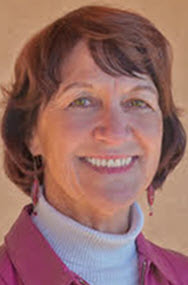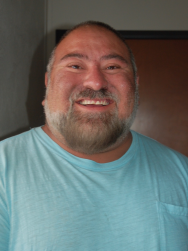 By Mary McPhail Gray
By Mary McPhail Gray
Board Chair
“I work from a deep commitment to partnership with my clients—asking them how we can help them achieve their goals” states Brian Salazar, the Director of the new Comprehensive Community Support Service (CCSS) program at Taos Behavioral Health. CCSS is a Centennial Medicaid-supported community-based behavioral program for individuals of all ages struggling with a mental health challenge that interferes with their successful independent functioning in the community. It provides psycho-social services to assist participants with learning the skills necessary to achieve the highest level of independent functioning, stability and independence.
After an assessment by a clinician, a plan is made with the client to cover five domains: community or independent living, employment or work, socialization, recreation and self-care, and thinking. Through group and individual sessions, the CCSS worker and client work together on goals in each area. “The client is in charge of making a self-assessment as we work together” states Salazar. If they are making progress, the client is able to find support for more fully participating in the community and building a satisfying life. In contrast to case management, where a professional performs the actions to link the client to systems, the CCSS professional teaches the client how to navigate systems and make use of resources they have seen as not open to them.
Salazar is well equipped to lead this program due to his education, cultural knowledge and professional and life experience. Raised between Costilla and Denver by his relatives, he obtained a BS in psychology with a minor in Chicano/Latino Studies from Colorado State University. After his degree, he spent a year in Mexico as part of a CSU Certificate program where he deepened his understanding of culture and increased his proficiency in reading, writing and speaking Spanish. “I always knew I wanted to come home and give back to my community” he comments. First working as a Case Manager at Tri-County Community Services and then spending ten years at the Children Youth and Families Department gave him the depth of understanding of community, families and legal/service systems.

Brian Salazar, LMHC
Salazar spent time as an investigator in protective services for both children and adults and worked in permanency planning and reunification. He still declares that his most passionate commitment is to middle school and teen agers—where “so much is happening in their development.” Knowing that he wanted to be more instrumental in their growth—he completed a Master’s in Counseling at Southwest College and did his internship at TBH with clients at the middle school.
Salazar believes that one of the strengths he brings to his clinical work is being a loving male who creates a safe environment in a caring relationship—something many clients have never had. He believes all sides of the community need to be involved in supporting change and growth in his clients and he supervises his CCSS staff to strive for that. There are 6 CCSS workers now trained at TBH. Referrals to the program are made by calling the TBH main number at 575-758-4297 and making an appointment for an assessment. Thursday is Walk-In Clinic day.
Salazar stresses that the program is “strength based””—“We work with the clients where they are—set goals together and create a realistic action plan.” It may involve group support work, help with transportation resources, guidance to obtain benefits, individual work to help re-frame challenges. “We walk the journey with them—and the results amaze us all.” Come join us!
TBH as the largest behavioral health licensed and credentialed staff in northern New Mexico. Contact us at 575-758-4297, www.Taosbehavioralhealth.org or at 105 Bertha in Taos.
Mary McPhail Gray is the board chair of TBH and can be reached at 575-779-3126 or mcphailconsulting@gmail.com

